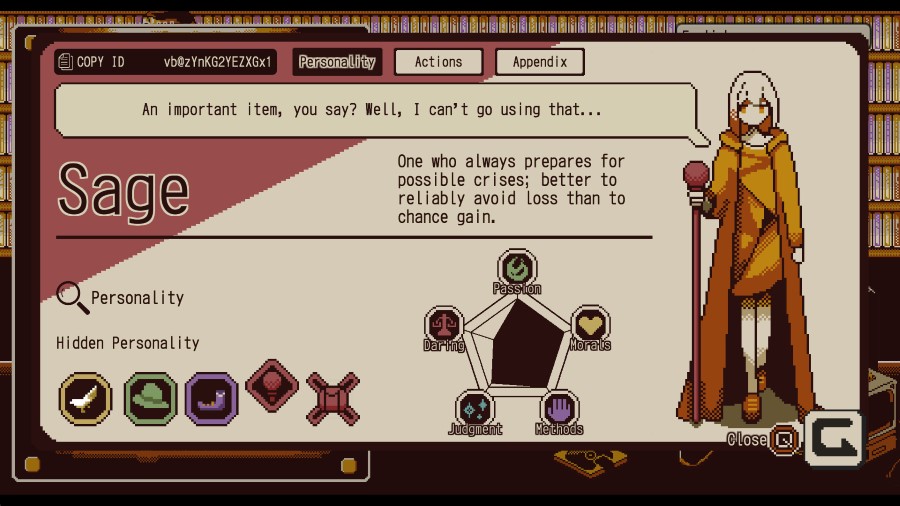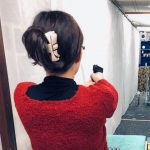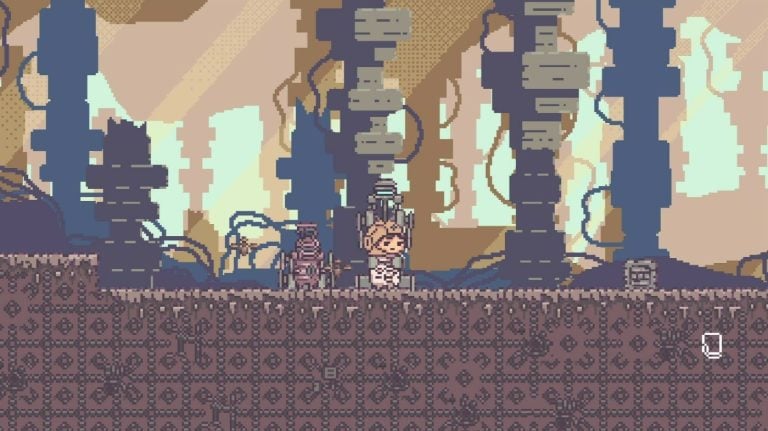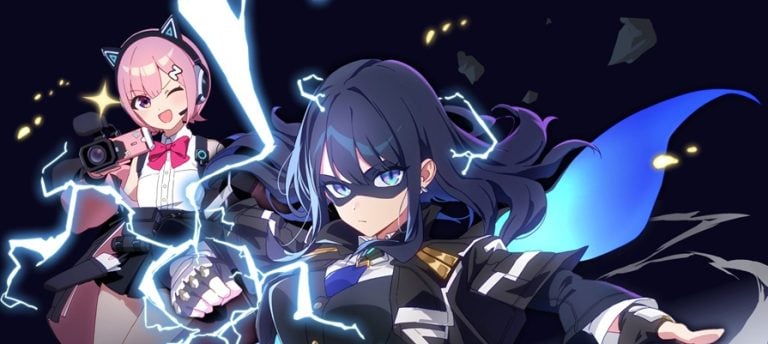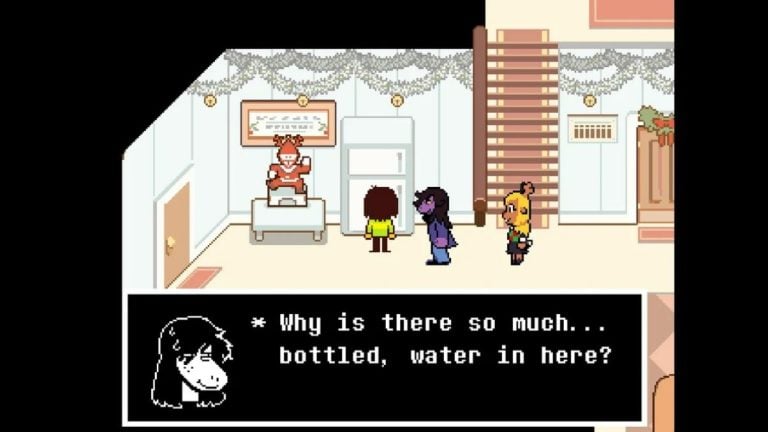Developed by solo Japanese developer Lizardry, Refind Self: The Personality Test Game is an adventure game that assesses the player’s personality in a novel way. You take on the role of a robot and explore a charming 2D pixel art world. The player’s personality is evaluated based on what actions they take during the game and the final results give you a comprehensive overview of what kind of person you are. You can read our review of the game here.
Published on PC (Steam) by Playism in November 2023 and set to be released on Nintendo Switch this summer, Refind Self currently has a Very Positive rating on Steam (out of 1800 reviews) and has sold around 200,000 copies. We interviewed the developer Lizardry and Playism representative Shunji Mizutani to find out how the publisher and developer exchanged opinions in order to create a polished and engaging game.
* Disclosure: The publisher PLAYISM is part of Active Gaming Media, which is also the owner of this website.
―― To start things off, please could you introduce yourself.
Lizardry: I’m Lizardry and I make games as a solo developer. My representative titles are the language interpretation adventure 7 Days to End with You and the personality test game Refind Self. Currently, I’m developing a new game, while spending each day trying to work out what kind of new game I could make. It’s hard to come up with ideas for new games, so I’m wondering when I will stop developing them in this way… (laughs).
―― (Laughs) Tell us about your experience as a developer so far.
Lizardry: When I first started out developing games, I was publishing mobile app games, and it was almost like a hobby. At the time, I was also doing other things and I never thought that game development would become my job. However, I had a certain amount of confidence in my skills, so I decided to make a one-time purchase game, which was 7 Days to End with You. After that, I released Refind Self, and here I am today.
―― You released Refind Self less than 2 years after 7 Days to End with You. Could you give a simple explanation of what kind of game Refind Self is for those who haven’t played it yet?
Lizardry: As you play, aspects of your personality are revealed- it’s a game that evaluates your playstyle and personality. Video games tend to bring out people’s personalities – I think Refind Self really embodies this concept. Although I recommend that you play it 3 times, it is a relaxing and enjoyable game that you can finish in about 2 hours.
―― How well has the game sold?
Lizardry: I think it has sold over 200,000 copies, which I am very thankful for. As for the percentage of sales on each platform, the Steam version accounts for about 50% to 60% of sales, and the mobile version accounts for around 40%. Recently, Refind Self has been discounted on Steam, which may have contributed to stronger sales.
Previously, I used to run a free-to-play mobile game, and when I look at things from that perspective, I think it is amazing that a buy-to-play game has managed to reach that many people. Thanks to the mobile release, the game was able to reach people who couldn’t play it on Steam, and I think that when word of mouth spread, a lot of people picked up the game because it was available on their device of choice. I think the Steam version is selling well because there is a mobile version. The reverse is also true.
―― To what extent did you predict the response to the game so far?
Lizardry: I thought, “I hope it sells” (laughs). Since comparisons between players, in other words being able to compare your personality score with those of other players, is a big part of Refind Self, I was concerned that the game would lose its potential if no-one talked about it. Therefore, I wanted it to sell so that it would become more interesting for players. However, I was confident that if I got a lot of people to react to the game, it would become a hit. I thought the game’s level of quality was quite high. Rather than whether it sold well or not, I also hoped that people who bought and played 7 Days to End with You and people who like games with stories would fully enjoy Refind Self.
―― As the publisher, did you predict that Refind Self would sell this well?
Mizutani: I had a feeling that it would do well to some extent, but it still sold better than I expected. It has sold 200,000 copies in 6 months, so total sales might reach around 500,000 copies. I am very happy and relieved that it became a hit that exceeded my expectations.
Lizardry: I remember talking to Mizutani-san about how I wished it would sell well. I had been pushing for Playism to publish my game, so I am happy about that too.
Making a game that generates “behavioral data”
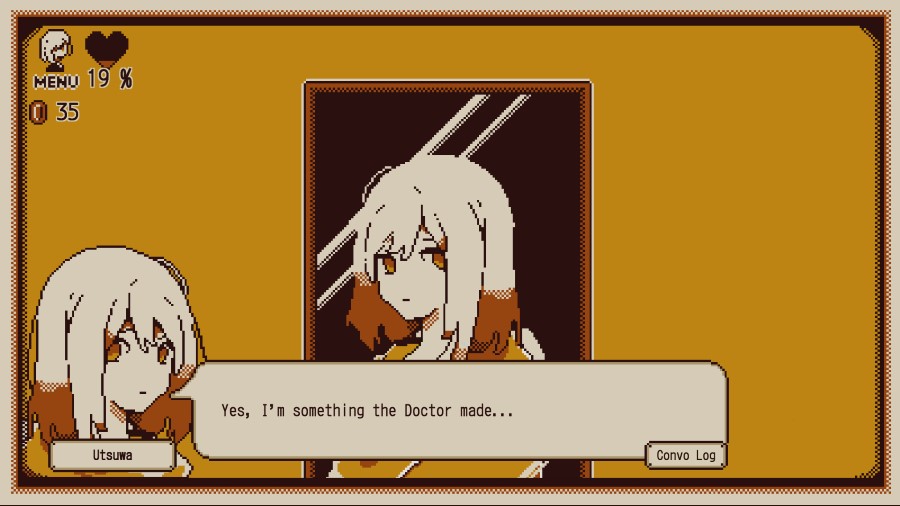
―― An adventure game with a personality test as its foundation is a very unusual concept. Where did the idea to create such a game come from?
Lizardry: When I released 7 Days to End with You, I was able to see various people’s gameplay, which gave me the idea (for making Refind Self). I realized that each person’s playstyle is really different, and I thought that this phenomenon itself was really interesting. I think it’s something I was only able to notice because I develop games.
Before I made Refind Self, I had no interest in personality tests and did not find them entertaining to do. But then I looked at various personality tests and came to the surprising realization that people, especially in Asia, don’t seem to mind whether a personality test has a good basis or not. Maybe I’m prejudiced (laughs) but I realized that dividing people into groups and labelling them is an interesting form of entertainment.
―― What kind of personality do you have?
Lizardry: I often get asked this question. When I played the game myself, I got the Pacifist personality type, however, I can’t rely on this result as I made the game myself. I hope someone else makes a personality test game soon (laughs). I’ve come to like personality tests through making this game.
―― When you select an option or perform an action in Refind Self, you will see the total percentage of other players who did this. How does this system work?
Lizardry:
The system itself is very simple- the game uploads data to the server. When the game launches, it downloads statistical data from the server and displays this as percentages. This aspect of the game is something I’m very particular about, and I don’t just call it a personality test. Rather, I think this data is meaningful because it shows what percentage of people behaved like me and whether my behavior was unusual or not.
The data can be very significant in terms of differentiating yourself from others, for example, “I did this because it came naturally to me, however, looking at the overall data, only 5% of players behaved in this way.” I tried to see how strongly I could present this to the players, and I thought that the game would be interesting for them if they found this data interesting.
This method has been used in other titles like Detroit: Become Human, but I think it was new to collect statistical data not only on what percentage of people picked which dialogue option but also aspects of gameplay, like the percentage of players who sat on a bench for more than 5 seconds.
―― So, the percentages are not shown until the baseline is established. Were there any biases in the data until enough sample data was gathered? It must have been difficult to determine personality types at this stage.
Lizardry: Yes, when I first passed the game over to Playism, it was very unbalanced. We were anxiously balancing the personalities right up to the release date. We had to get sample data from people who don’t normally play games as well, so we even asked relatives to play the game offline so we could obtain data.
―― Have there been any changes in the ratio of results between the immediate post-launch period and now?
Lizardry: We have only adjusted a few glitches since launch, so even if you play the game in the same way, you won’t suddenly get a different personality. However, the range of personalities was different among the people who bought the game at launch and those who bought it in the sale. In particular, the percentage of players who were the “quick to make decisions” type was very high after launch. I think this suggests that many people who check information about the latest releases and want to play a game as soon as it comes out are quick at making decisions.
―― When gathering these statistics, was there any data that surprised you as the developer?
Lizardry: I got the impression that people’s choices are more varied than I had expected. Before the game’s release, I thought that players would generally behave in the same way. I predicted that the data would be like a graph where there is a clear majority and a minority. However, I did think that people’s personalities would be reflected in their actions, so each person would do at least one behavior that fit into the minority. But the data was quite spectacular, with opinions and actions being more diverse than I had imagined. In particular, I thought that after three rounds of data, the percentages for each choice would be about 50-50 but I was surprised to find that they were more polarized than I had expected.
―― In this game, unusual behaviors such as sitting on a bench for over 5 seconds and touching the sidewalk are also tracked. Are there any behaviors that are being tracked but haven’t been performed by anyone yet?
Lizardry: There is nothing that hasn’t been done yet. However, from what I’ve seen on social media, it seems that there are some aspects of the game that players are not aware of. For example, there are actually two correct combinations for the safe. Mizutani-san asked me once, “How do you solve this?” I don’t keep a log, so I cannot tell if anyone has solved it or not, but I think perhaps no-one is aware of it, or if they are, they are keeping the knowledge to themselves. When you hide something important like a safe, maybe it is very effective to give a fake answer (laughs).
Making a personality assessment game
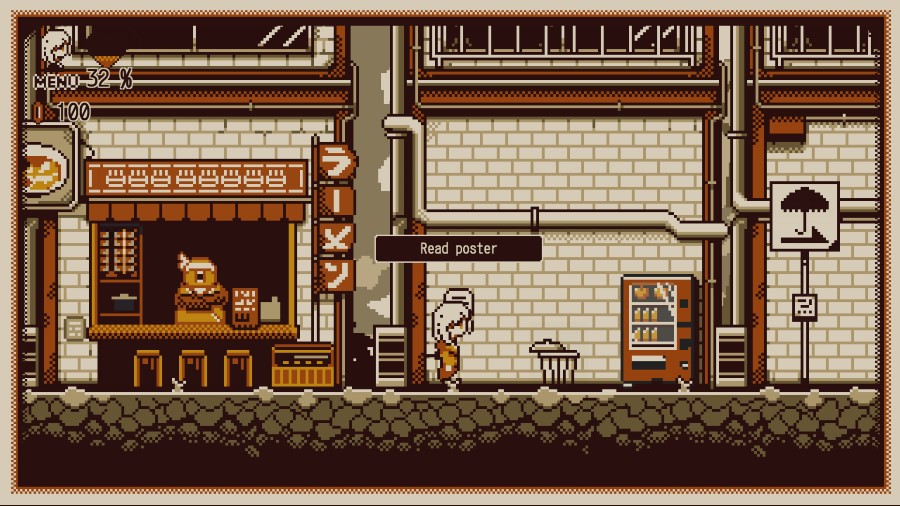
―― Compared to 7 Days to End with You, I feel like Refind Self’s game design and UI are more polished. You have added small details like sound effects. What was the development process like?
Lizardry:
I basically develop everything by myself, including the graphics. When making prototypes, I use free placeholder images to speed up the process. However, I don’t make the sound effects or music by myself. I purchase the sound effects or use free resources (which I’m very grateful for). I asked a music composition company called G-Angle to do the BGM. I told them what kind of music I would like, and we worked on the BGM together.
―― Refind Self’s graphics are very high quality in terms of expression. Did you do the pixel art yourself?
Lizardry: Yes, it was all done by me. I don’t have a background in design. It took me around a year and a half to create Refind Self after finishing 7 Days to End with You. However, I had made lots of prototypes before that, so I feel like I got better at doing pixel art.
―― I get the sense that you are evolving as a designer and graphic artist too. It’s refreshing to see, as you don’t usually get to watch a solo creator improve with each work right before your eyes.
Lizardry: I’m the kind of person who wants to improve their skills while releasing games. I think some creators want to develop their skills before making their work public, but in my case, I have been releasing games ever since the days when I was making small-scale titles. Even though I am a novice, I like to make my games public and receive feedback as I create them. My standpoint is that it’s good to learn from the production process.
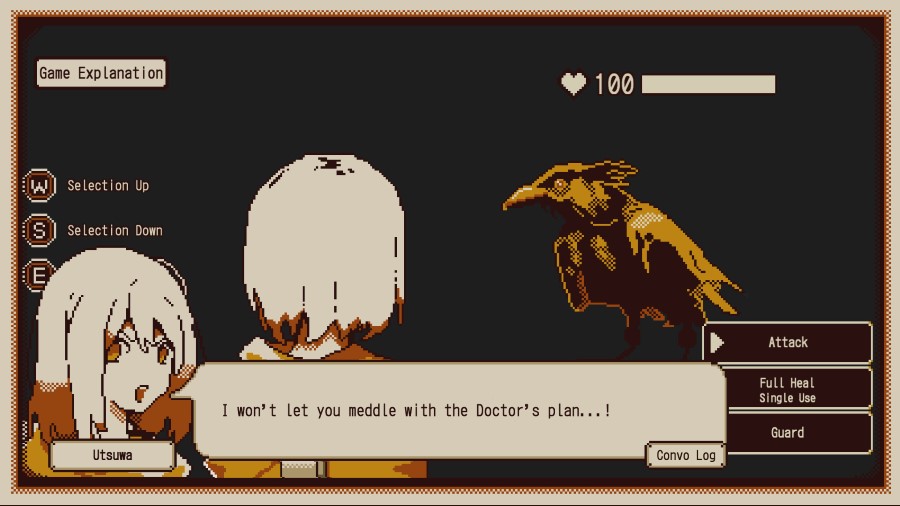
―― Please tell us about the production period. Total development took one and a half years, but as the prototypes took a year to make, does this mean that development of the actual game took six months?
Lizardry: Yes- actually, I took time to do various things between the completion of the game and its release, so I think it took a little less than six months.
Why was Refind Self remade so many times?
―― I understand that there were at least three prototypes of Refind Self, which took up a significant portion of the development period. I believe you were developing the game while keeping in contact with (Playism’s) Mizutani-san, but could you give us some secret insight into this period and the kinds of ideas and reactions you received?
Lizardry: The prototype I initially showed Mizutani-san was actually a proposal for the second prototype I made.
Mizutani: Oh yeah, that’s right.
Lizardry: I submitted the proposal with the prototype- it was a slightly playable game that still had some bugs. The version I showed to Mizutani-san contained the worldview and elements that were carried over to the production version of Refind Self.
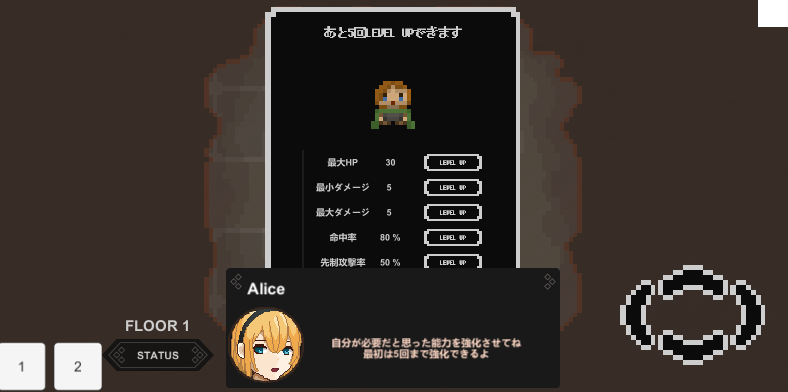
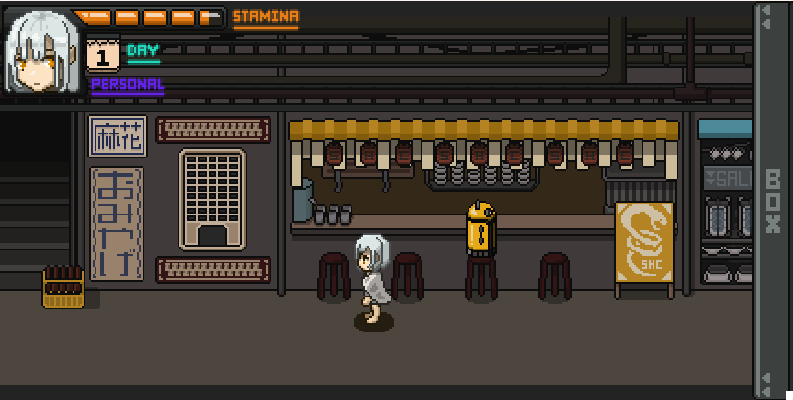
Mizutani: You initially showed us a personality test game where you controlled a girl who is about to set off on a journey of self-discovery.
Lizardry: That’s right. It was a game where you control a girl before she sets off on a journey to find herself. Her personality is determined by how she behaves during the preparation period for the journey, with the journey’s outcome changing depending on her personality. However, this game did not embody the concept of “a game that reveals the player’s personality.”
In the prototype version, personality was assessed from how the player acted- however, because it had a clear story, the focus was on what would happen on the journey. Therefore, it was a game where you are not looking forward to seeing how your personality will emerge, but rather enjoying what will happen as a result of your personality. I scrapped the whole game because I realized that I had made something that deviated from the concept.
―― Are there any plans to reuse the content of that prototype and release it? I would like to play that game…
Lizardry: There are no plans to do that (laughs). But some of the elements from the prototype were incorporated into Refind Self. In the prototype, the girl sets out on a journey to find out why she was born- she is the only human in a world where everyone else is a robot. The events in the prototype take place 100 years after Refind Self, and the reason this girl is born is depicted in the game.
When I thought about what kind of story I wanted Refind Self to have, I realized that it would be interesting to show the backstory behind the prototype, so that’s how I came up with the story’s concept. Originally, the game was about going on a journey and investigating why the world and self are the way they are, which explored a storyline that is partially depicted in the production version of Refind Self.
―― I see, you didn’t want the core of the game to be unclear.
Lizardry: That’s right. I think how well you follow the concept is important when making a game in general, not just for Refind Self. You can’t change the concept halfway through, and whether you can release your game or not depends on whether you managed to stick to the concept. I think it is important to come up with a concept that you want to work on, rather than picking one based on how well it will sell or how attractive it is.
The prototype could have been interesting if I’d fully developed it, however it would have probably ended up being a multi-ending game with a slight personality test element. To be honest, if you wanted to play a multi-ending adventure game, there are more interesting games out there, so why wouldn’t you play them instead? I decided that there would be no need for players to go to the trouble of playing my prototype.
Mizutani: I got the same impression when I played the mock-up that Lizardry gave me. The girl goes on a journey and comes back after going through various changes that depend on your personality. But this system made me want to see many different endings. I was concerned about whether this would really work as a personality assessment as players would take actions that had nothing to do with their personality to achieve different outcomes.
What happens after the journey was the main part of the story, so I also wondered how fun the journey preparation aspect would be. I’m hearing about this (Lizardry’s thought process regarding the prototype) for the first time too. Lizardry had told me, “I’ll send you the final version soon,” but everything I had seen in the first version had been discarded (laughs).
Lizardry:
I gave Mizutani-san this version just before I scrapped it, and I didn’t tell him that I had stopped making the game in this way. So, he was surprised when I changed it (laughs).
Mizutani: So you did. This takes me back.
―― You mentioned about how you created two prototypes starting from scratch. How did you approach making what would become the current version of Refind Self?
Lizardry: The Version 3 prototype that I gave to Mizutani-san came a lot closer to what I wanted to achieve with the current Refind Self. I received a lot of feedback when I submitted this version to Playism. By adjusting the points I got feedback on, the game became Refind Self. Therefore, the released version of Refind Self is Version 4.
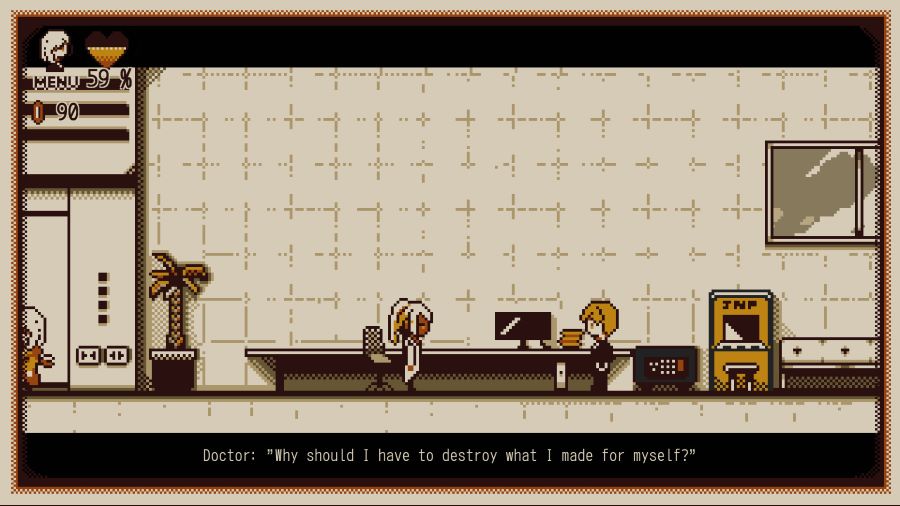
―― What kind of feedback did you offer?
Mizutani:”It’s too clean-cut.” Version 3 was not about a girl going on a journey, but rather a story about a girl who is overthinking and searching for herself. After taking various actions and completing her journey of self-discovery, the player is told that, “Every single person’s personality is different. No matter how many players there are, no-one behaves in exactly the same way as you. That’s why you are unique.” I found this conclusion to be slightly over romanticized. I felt that it was just a matter of people behaving differently, which is not the same as individuality.
Lizardry: I believe that our personalities are reflected in how we behave. For example, if you go for a walk, do you watch other people or do you watch the trees swaying in the breeze? The idea of singling out behaviors and using them to assess personality came from observing this type of behavior. I wondered if I could use this as the punchline of a piece of entertainment. I think this is what made the final message of Version 3 too “pretty.” It was cliched and you could see it coming from the start. I made it in an “everyone is different, everyone is good” kind of way.
Mizutani:
Version 3 was about an ordinary girl, but the characters, including their graphics, were very appealing and I felt more inclined to explore the world in addition to the personality assessment element. However, I felt a little uneasy about the fact that the player becomes the girl…I felt uncomfortable about projecting my own personality onto the girl in the story.
―― Because the player is not necessarily a little girl.
Mizutani: Exactly. I’m an older guy (laughs), so I was concerned about whether it was ok to project my personality onto this girl. Also, Version 3’s game design made it feel like exploration was cut short- I wanted to continue to explore. It could have been a more interesting adventure had it used the personality test mechanic more. This was the feedback on Version 3.
Lizardry: We had a lot of people from Playism try out the game, and the reactions indicated that it wasn’t that fun. Thanks to this negative feedback, I was able to visualize the outline of what I wanted to convey. Playism were very cooperative when it came to playing the game, so I was able to quickly produce the current version and hand it over to Mizutani-san. The reactions after that were quite good.
Mizutani: With the main character being a robot, it feels quite satisfying to project your own personality onto them. This greatly raised my level of satisfaction with the game and I felt that it would work. At around the same time, Lizardry told me that he wanted to finish working on the game and release it soon. I personally thought it would be good if you continued working on it for a little longer, so what was the reason for that?
Lizardry: In my mind, I was confident that I could polish up the game if I had a 3-month production period. It takes time between signing a contract with a publisher and releasing the game. Therefore, I thought that if I signed the contract when the project was almost completed, I wouldn’t be able to release the game while I still felt enthusiastic about it. Therefore, I wanted things to be decided on quickly while I was still enthusiastic. But maybe I was in too much of a rush (laughs).
The advantages of having a publisher
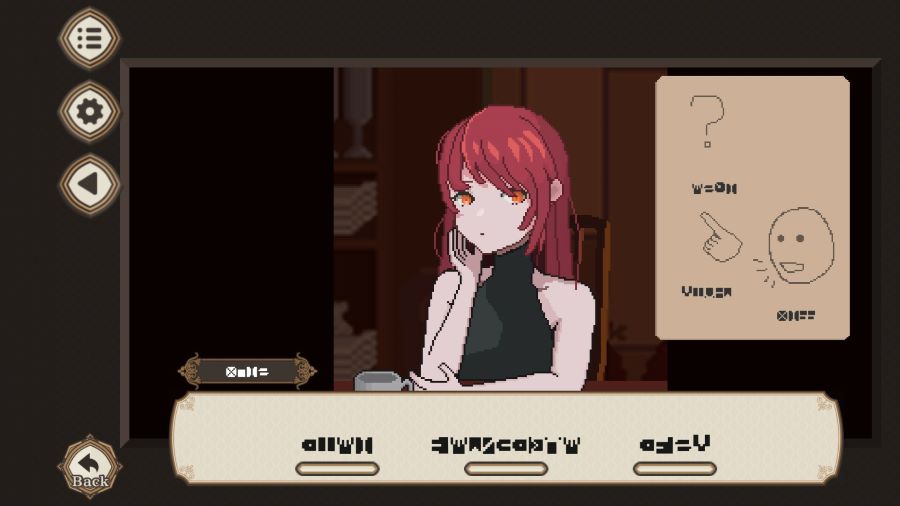
―― Lizardry, you were self-publishing when you began developing 7 Days to End with You. From what you have said, it seems you are someone who places importance on flexibility, so did working with a publisher slow you down? What made you decide to sign a contract with Playism for Refind Self?
Lizardry: I got a very positive impression of Playism when we worked together to publish the Nintendo Switch version of 7 Days to End with You. I felt like I wouldn’t entrust my game to anyone else except Playism. For Refind Self, it was necessary to have a lot of people playtest it because it’s a personality assessment game that is bigger in terms of volume compared to 7 Days to End with You. To be honest, I asked all the Playism staff to test if the personality assessment element was implemented properly, but it still wasn’t enough.
Due to the game’s nature, having many people test it made it more interesting, and I needed the sales power of a publisher for that. The game required not only testers but those that were trustworthy. The cooperation of a publisher was essential to the game’s very concept.
Due to this process, it’s hard to say whether or not I will ask Playism to publish my next game. I personally would love to work with them again, but it’s difficult to say whether working with Playism will benefit the next game, as it depends on its content. Depending on the game, I think it might be best to work quietly on my own if I want to polish it up. It was precisely because the game was Refind Self that I wanted to work with Playism, so I pushed Mizutani-san hard to accept it.
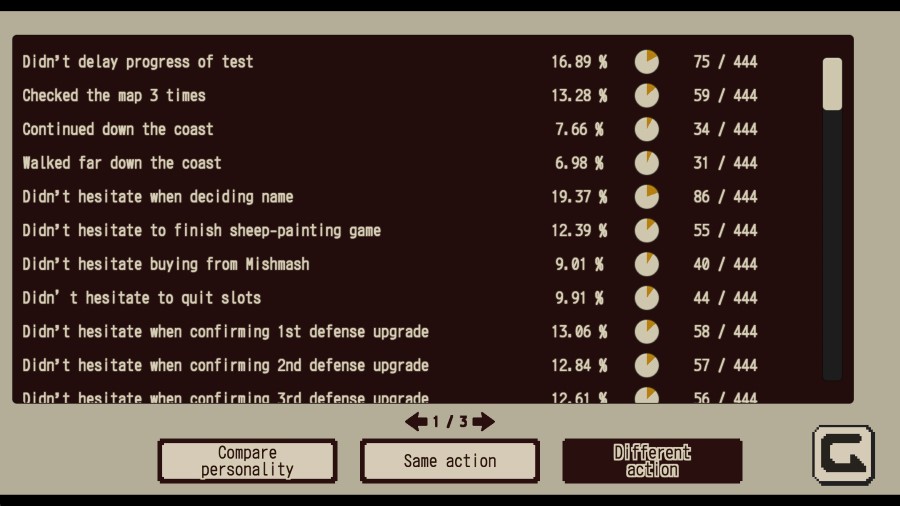
―― From the publisher’s standpoint, was there anything that stood out to you during development?
Mizutani: There are two aspects of publishing Refind Self that made a significant impression on me. At Playism, we have never actually had this much say in the content of a game before. Our stance is that the developer should basically make what they want to make. But I sensed that this game had strong potential, so I asked Lizardry to implement various things. For example, the initial idea for the title was “Games reveal your personality,” but I thought this had too much of a marketing feel to it, so I asked him to change the title. In the end, I’m glad we came up with the great title “Refind Self.”
A problem was that the game takes about 30 minutes to play through once, and Steam issues refunds for titles that have been played for less than 2 hours. I also wanted to explore the world a bit more, so I asked if Lizardry could make the game a little longer. Then Lizardry came up with a simulator-type mini game that you could play once you have completed the main game… but I said, “let’s not do that.”
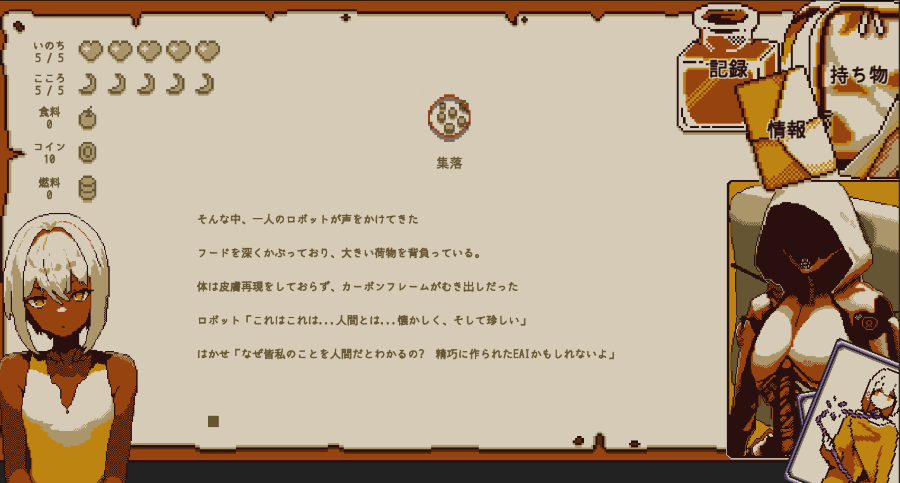
Lizardry: I made that mini game right up to the ending. It was quite interesting, wasn’t it?
Mizutani: Yes, let’s release it as a stand-alone title someday.
Lizardry: But I think it was a wise decision, as it allowed me to focus on polishing up the main game instead. We were able to improve all the pixel art and UI elements once the release date was decided.
Mizutani: I was impressed when Lizardry agreed to my unreasonable request to make it so that players had to play through the game three times to see the true ending.
Lizardry: Yes, the main plot of the story wasn’t changed. We just reconsidered how to integrate it into the game and convey it to the player. We wanted to successfully summarize the player’s personality in an enjoyable way that would make them want to play the game three times.
Mizutani: It was an excellent way to wrap up the game.
―― Lizardry, you have been developing games on your own for a while now. How did it feel to have a publisher and to have other people’s opinions incorporated into your game? It must be annoying to receive strange feedback on something you have poured your heart and soul into.
Lizardry: It was reassuring to me because I am the kind of person who likes to receive feedback. The people at Playism play lots of indie and individually developed games, so I found the opinions of fellow game-lovers trustworthy. This also allowed me to judge what points I should or should not take into consideration.
――You were also able to carefully examine feedback from the publisher.
Lizardry: Yes. It can be confusing to get feedback from an unspecified number of people because you don’t know their backgrounds. For example, I might get a comment that “The game is too difficult,” but how this should be addressed differs depending on whether the person is a regular gamer or is someone who never plays games. It was very gratifying to receive feedback on Refind Self from people who know a lot about games.
―― Refind Self is scheduled to be released on the Nintendo Switch. Are there any new additions to this version?
Lizardry:
You will be able to view more detailed data about the personalities, as well as more in-depth data about yourself. This feature will also be added to the game on other platforms at the time of the Nintendo Switch version’s release. Personally, I’m interested in this because we haven’t been able to analyze the Switch player demographic before.
―― You sound like an academic (laughs).
Lizardry: (laughs) Incidentally, I asked Playism to port the game to Switch like I did with 7 Days to End with You. Playism work from the player’s perspective, so I think they will do a really good job.
Actually, I was initially against the idea of porting 7 Days to End with You. It’s a game where you type in text, so I thought the user experience would be ruined if it wasn’t on PC or mobile… But that wasn’t the case at all in the end. I had a good experience working with Playism, so I trust that they will do a good job this time too.
―― Thank you.
Refind Self is currently available on PC (Steam), iOS and Android. It is scheduled to be released on Nintendo Switch in summer 2024.
Interviewer, Writer, Editor: Aki Nogishi
Interviewer, Editor: Ayuo Kawase
Translator: Verity Townsend
Translation Editor: Amber V
The original Japanese interview can be found via Automaton Japan.

